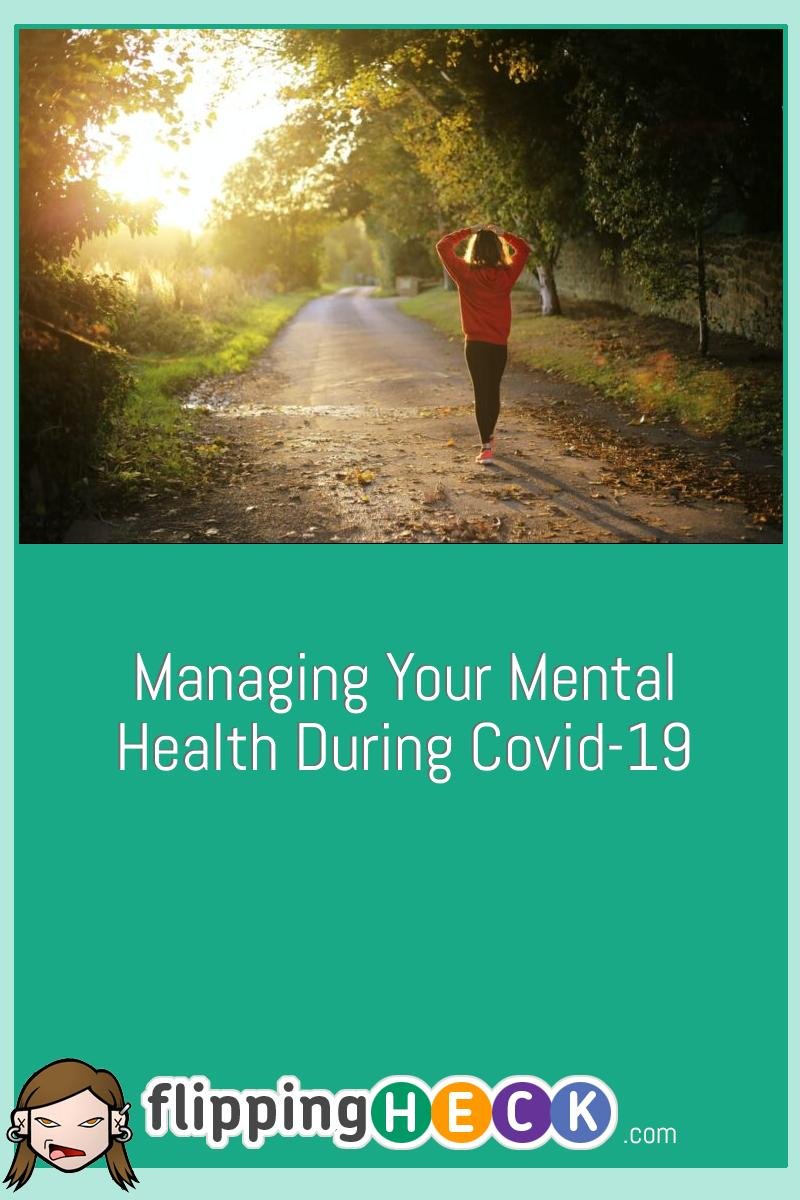Managing Your Mental Health During Covid-19
It is always important to look after your mental health, but mindfulness and self-care are even more important during this unprecedented global pandemic. This article discusses five ways to look after your mental health during the COVID-19 pandemic.

It is always important to look after your mental health, but mindfulness and self-care are even more important during this unprecedented global pandemic. This article discusses five ways to look after your mental health:
1. Find some new hobbies
With many of our old hobbies and interests unavailable, now is the perfect opportunity to find some new ones that can be done in a socially distant/solo manner. Having a new interest can give you a sense of purpose, make you more interesting and introduce some welcome normality to your week. There are a wide range of online courses/videos available that cover a whole host of subjects. Whatever you fancy having a go at, there is a course and community waiting for you.
There is a wide range of online courses/videos available that cover a whole host of subjects. Let’s suppose if you’re interested in learning something distinct that can make people astonished you can enroll yourself in an online hypnotism training course to learn some amazing mental tricks. So, whatever hobby you find suitable there is a course and community waiting for you.
If it seems impossible to find the time, maybe you can read books in a different type of genre, start listening to podcasts or audiobooks during your commute or start playing a quick new game on your phone.
2. Get some fresh air
Getting outside each day for some fresh air and daylight restores mental energy, increases your ability to concentrate, improves creativity and releases tension. Research has shown spending time in nature improves both physical (boosts immunity and sleep quality) and mental health (including anxiety and depression).
3. Consider a digital detox
It is so easy to fall into the habit of incessantly scrolling through social media and news apps. The news is constantly changing and can be overwhelming, so while it’s important to stay informed, it can help to set a limit on time spent reading/listening to the news and select your sources carefully. Try to avoid scrolling through your news feed right before you settle down to sleep! Although social media remains vital in helping us feel connected during these isolated times, keeping to a routine for quick checks can help this remain a positive interaction rather than a negative self-comparison spiral.
Many smartphones log your screen time and show you a breakdown of how long you spend on certain apps. There are digital wellbeing apps that can help you set maximum scroll times, which are particularly helpful for those who feel they spend too much time online. A self-imposed digital detox can reduce stress and improve sleep quality, particular if you reduce screen time before you settle down for the night.
4. Consider gratitude journaling

Photo by Kelly Sikkema via Unsplash
Rather than focusing on what is gone wrong each day, a gratitude journal encourages you to focus on positives. It may seem hard to be grateful during a global pandemic, but once you start looking for things you really appreciate you will feel more positive overall. Examples include gratitude for a beautiful day, your health, the delivery courier, hearing a bird singing, a simple act of kindness or hearing your favourite song on the radio.
If it seems overwhelming having to make daily notes, you could just keep a weekly journal. Mental health experts also recommend noting positive affirmations regularly. These include statements such as ‘I will be as kind to myself as I am to others’ and ‘I will not worry about the things I cannot control’ and can even cover specific aspirations such as ‘I will find a new job’ or ‘I will become the best version of myself’. The power of positive thinking cannot be underestimated!
5. Set clear boundaries

Photo by Cristian Newman via Unsplash
You may be so busy looking after everyone else you don’t have time to take care of yourself. Many people don’t realise that by looking after yourself first, you are better able to take care of everyone else. Whether you have too many competing priorities, or struggle to separate working from home from home life, it can be helpful to set clear boundaries and communicate your needs with loved ones.
For those working from home, create logging on and logging off routines and rituals, and strive for a positive work-life balance to avoid burnout. Remember, you are not just working from home, you are trying to work, during a global crisis – all you can do is your best. If you are struggling with spending more time indoors with family or housemates, schedule in me-time or discuss what needs to change
Final Thoughts
Hopefully, some of these suggestions will help increase your mental resilience while we all adjust to the new normal. It is important to emphasise that the current pandemic will not last forever, but while it is part of our lives, exercising mindfulness and implementing the above suggestions will help.

